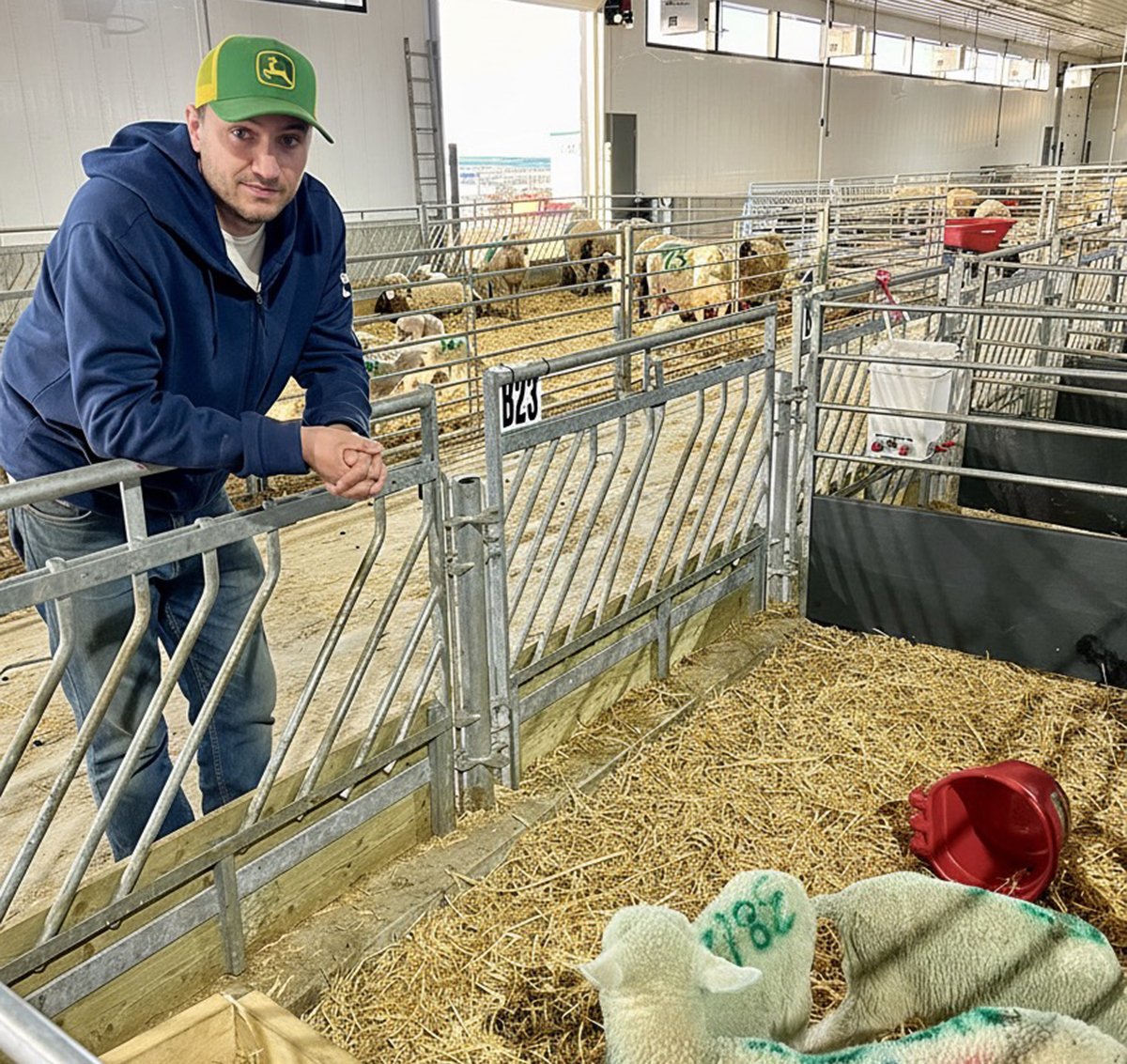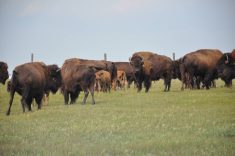A Saskatchewan slaughter company that built a reputation for processing naturally raised, hormone-free cattle is moving into another niche market – horse meat.
Ken Piller, president of Natural Valley Farms in Neudorf, Sask., says his plant will begin custom slaughtering horses for European clients within the next few weeks.
Natural Valley, which owns specialty slaughter and processing facilities in Neudorf and nearby Wolseley, Sask., has been in business since 2005 but this is its first foray into the horse slaughter business.
Piller said the company will begin slaughtering Canadian horses as soon as necessary changes are made to processing and slaughtering lines.
Read Also

Solar, sheep provide valuable farm diversification
Eric Steeves says raising sheep on forages grown under solar panels provided economic stability and perhaps even saved his family’s fifth generation southern Alberta grain farm.
The custom slaughtering arrangement has enabled the company to bring back a number of employees who were laid off earlier in the year, he added. Natural Valley now employs 150 people at its two Saskatchewan plants.
“We’ve been contracted to process some horses … to be marketed into (Europe),” Piller said.
He didn’t know how many horses will be slaughtered.
“That depends on whatever their orders are. We’re just custom processing. We don’t buy (the horses) or sell them. They just show up, we process them and put them in a box and (our client) sends them to Europe.”
Piller said Natural Valley is one of two slaughter plants in Canada that meets European Union standards, allowing it to export meat products to Europe.
“They have a big appetite for a lot of Canadian products that they’ve never been able to get before.”
The decision to get involved in the horse slaughter industry might have a positive impact on the local economy but it does not sit well with groups opposed to the slaughter and consumption of horses, said Shelley Sawhook, president of the American Horse Defence Fund.
In the United States, opposition to the horse slaughter industry has been mounting for years and several American states have banned the practice.
Proposed federal legislation aimed at shutting down the U.S. industry has so far failed to take hold.
Only one facility in the U.S. is slaughtering horses. That plant, in DeKalb, Illinois, kills about 250 to 300 horses a day.
In Canada, horse slaughter numbers have remained fairly steady over the past five years, averaging 55,000 animals per year between 2002 and 2006. Most of those horses come from Canadian auctions but some are imported from the U.S.
On average, about 4,000 American horses are shipped to Canada each year to be slaughtered but the numbers are down significantly this year, according to statistics from the U.S. Department of Agriculture.
Sawhook challenged suggestions that slaughter horses are unwanted castoffs from the horse racing and pregnant mare’s urine industries.
“We urge our constituents, obviously, to support a total ban on horse slaughter because we feel that just because a horse is for sale doesn’t mean that it’s unwanted.”
Nancy Perry, vice-president of government affairs with the Humane Society of the United States, said methods used to kill horses at some plants are often crude and torturous.
“We believe that it is inhumane – both the transport and the slaughter itself – and we feel that it would be difficult if not impossible to conduct these activities in a humane manner given the nature of horses and the nature of the industry,” Perry said.
“In the U.S., people don’t eat horse meat because they really do view these animals differently … just as they view dogs and cats differently.”
Piller said no one has objected to the company’s plans to slaughter horses, adding that the custom processing arrangement is good news for Natural Valley Farms, which has been struggling to increase slaughter volumes.
To acquire EU approval, slaughter plants must meet rigorous standards that ensure animals are treated humanely.
In October 2005, Natural Valley received government grants worth nearly $630,000 under the Meat Processing Investment Rebate Program, a federal-provincial initiative aimed at spurring investment in the Canadian meat processing industry.
“We’re new and we’re young and … and it’s taken us a long time to get to our position to be EU (approved),” Piller said. “This opportunity (to slaughter horses) allows us to go right back to full employment.”
Natural Valley is also working with First Nations clients in hopes of developing Canadian beef and bison products for European markets.















